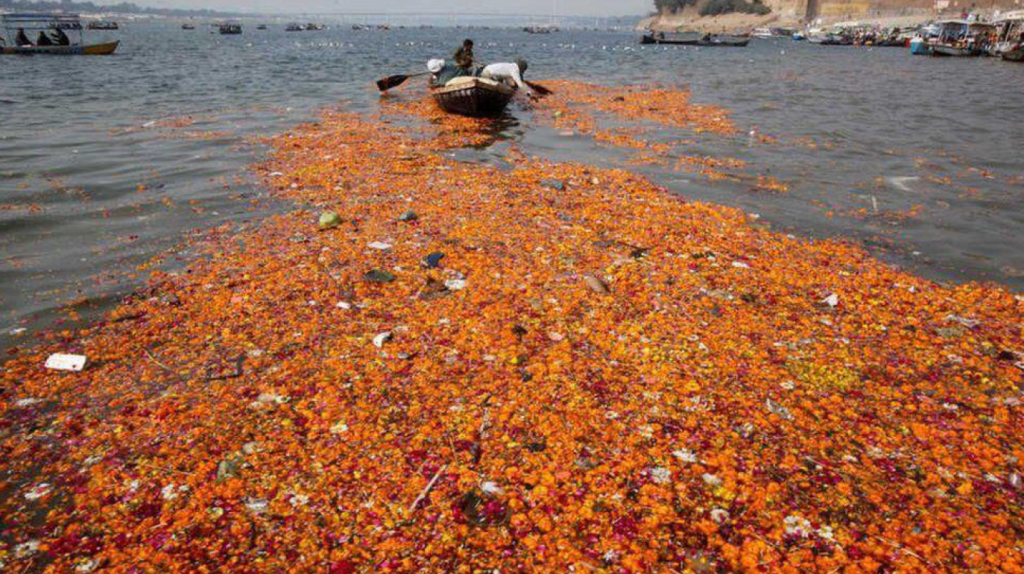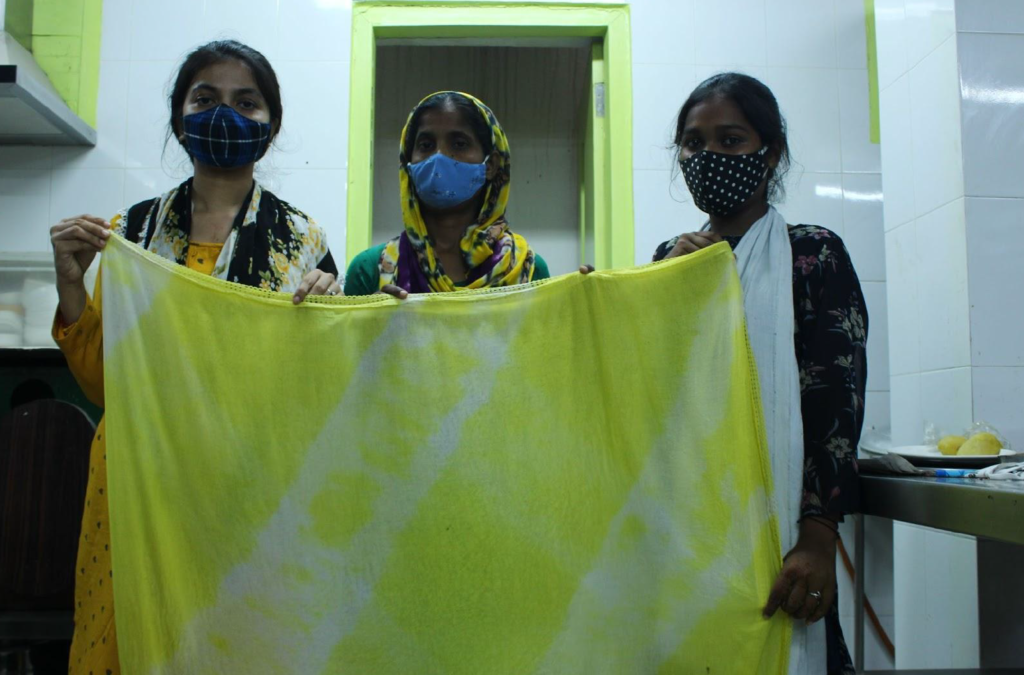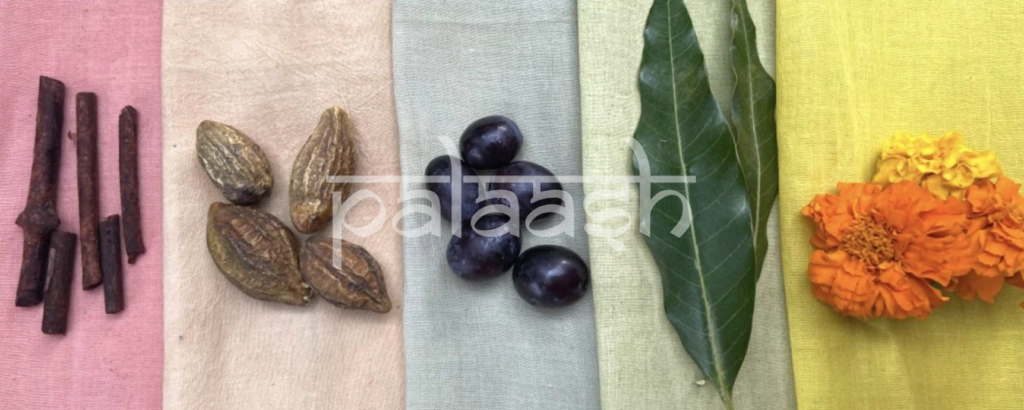Floral waste poses a significant challenge in India, with places of worship generating a staggering 20 tonnes of discarded flowers daily. This waste, deemed holy due to its use as religious offerings, accounts for nearly a third of all solid waste in the country, polluting both land and water. The country’s religious and cultural activities generate 8 million tonnes of hazardous bio-waste annually, which seeps into water bodies and adversely affects marine life.

In response to this ecological crisis, Project Palaash was initiated in 2019, committed to solving the problem of inefficient floral waste management and consequent water pollution. It aims to utilize these flowers to create organic dyes while concurrently working towards a two-fold vision to safeguard life underwater and generate employment opportunities for destitute community members.
At its heart, Project Palaash serves a dual purpose: combating floral waste pollution and fostering sustainable fashion. Waste reduction and water management are directly tackled by formulating organic dyes as a substitute for synthetic ones. The traditional Indian art of handloom is also revived, with techniques like lehariya, ombré, and tie & dye being employed. Organic materials such as tea leaves, marigolds, madder, and spinach leaves are harnessed to produce vibrant brown, yellow, pink, and green dyes respectively. Palaash grows through its seasonal campaigns such as Abir, Bandhan, and Utsav on Holi, Rakshabandhan, and Diwali, as we intend to celebrate all festivals with not only friends and family but with nature as well.

Empowerment lies at the core of Project Palaash. Collaborating synergistically with the NGO STOP GLOBAL MOVEMENT, the initiative extends its arms to our women entrepreneurs, who were once victims of human trafficking, transforming them into the true essence of Project Palaash. The project empowers these women by providing skill development training in dyeing, enabling them to become self-sufficient social entrepreneurs and achieve financial independence. Simultaneously, artisans and weavers receive support, as the project imparts knowledge of the organic dyeing process, enhancing their market reach. By sourcing raw materials from handloom units in Madhya Pradesh and Gujarat, Project Palaash has achieved a remarkable milestone—reducing production costs while sourcing 100% organic cotton fabric.
Project Palaash is a beacon of awareness in India, confronting pressing environmental concerns with sustainable solutions. Its restoration and preservation activities span across aquatic and terrestrial ecosystems by employing a solution with multifold impact- waste management on land and safeguarding water bodies from the harm of chemical runoff caused by synthetic dyes. The project is driven towards creating scalable economic opportunities for our beneficiaries by giving them the elbow room to earn a sustainable livelihood through opportunities aligned with thriving and bio-diverse ecosystems. The project aspires to inspire readers to recognize the importance of sustainability in addressing environmental challenges, seeking to attract like-minded individuals, potential collaborators, partners, and investors who share its vision and can contribute to the growth and scalability of Project Palaash.
For more information, check out the updates on
Facebook- https://www.facebook.com/profile.php?id=100084615115073&mibextid=LQQJ4d
Instagram – @projectibtida
Website – www.projectibtida.com , www.enactusaryabhatta.com


